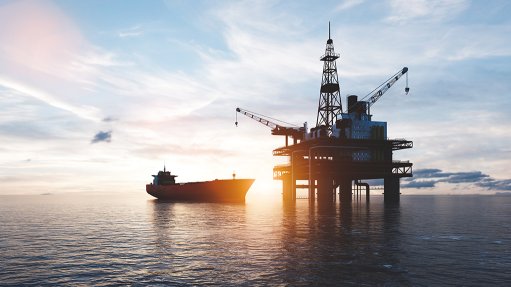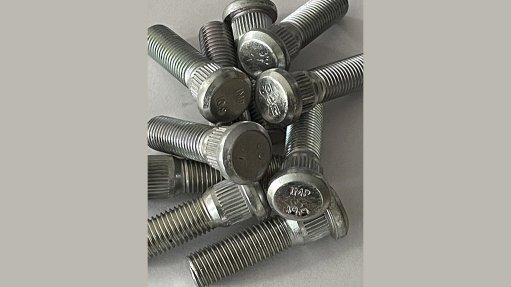Poverty and inequality
While contemplating last week’s column, ‘The poor and miserable simply cannot be let be’, it dawned on me that the meaning of ‘poverty’ and ‘inequality’ – two of the most misused words in South Africa – might well be misconstrued.
The most prominent government document on the topic is the National Development Plan (NDP) 2030, which states in its introduction: “The National Development Plan aims to eliminate poverty and reduce inequality by 2030. South Africa can realise these goals by drawing on the energies of its people, growing an inclusive economy, building capabilities, enhancing the capacity of the State, and promoting leadership and partnership throughout society.”
It adds: “To eliminate poverty and reduce inequality, the economy must grow faster and in ways that benefit all South Africans.”
One of the goals of the NDP is to reduce unemployment to 14% by 2020 and to 6% by 2030.
Returning to ‘poverty’ and ‘inequality’, the two words are often used interchangeably, but they are, in fact, mutually exclusive. A Forbes article published in March 2015, which was titled ‘Poverty and inequality are not the same thing, so let's try not to confuse them’, argues: “The distinction should be simple: poverty is when people don't have very much and inequality is when some people have more than others.” This distinction is vital, it adds, because, “most importantly, the one thing currently driving global poverty downwards is also the thing driving inequality upwards in many countries”.
Although there is a distinction between the two phenomena, their cause is the same: globalisation. To effectively deal with the challenges of globalisation, it is critical to distinguish between ‘poverty’ and ‘inequality’. Professor Donald J Boudreaux says: “The importance of this difference is that globalisation, the biggest by far contributor to that fall in absolute poverty, also leads to a rise in inequality in the rich countries”.
In his commentary, ‘Why Is This Distinction So Difficult to Grasp?’ he argues: “An unequal distribution of income does not mean that people at the bottom of the distribution are poor in any absolute sense. And in a world, such as ours, in which the amount of total wealth grows over time, everyone can become wealthier – indeed, become fabulously rich – even if income inequality increases. Indeed, recent research suggests that simply transferring more money to relatively poor people in rich societies does not provide much relief; poverty persists for reasons that run far more deeply than the fact that some people earn more income than do others.”
Talking about poverty, it is important to distinguish between absolute poverty and relative poverty. The former is when household income is below a certain level, which makes it impossible for the family to meet the basic needs of life. Even if the country is growing economically, this will have no effect on people living below the poverty line. Relative poverty is when households receive 50% less than the average household income, meaning they do not have enough money to afford anything beyond the basics. The economic growth of a country affects this type of poverty. So, South Africa’s challenge is to lift citizens out of absolute poverty.
On June 23, Statistics South Africa reported that unemployment for the first quarter – pre-Covod-19 – increased to a record 30.1%. Recall the NDP’s “14% by 2020 and 6% by 2030”? That, however, does not imply that more than half of South Africans are employed – the absorption rate (employed/population rate) is but 42.1%.
In light of this, do you believe government’s NDP’s assessment that “inequality and poverty can be addressed by raising incomes through productivity growth and reducing the cost of living”? Or do you believe that its aims “to eliminate poverty and reduce inequality by 2030” are achievable?
Article Enquiry
Email Article
Save Article
Feedback
To advertise email advertising@creamermedia.co.za or click here
Press Office
Announcements
What's On
Subscribe to improve your user experience...
Option 1 (equivalent of R125 a month):
Receive a weekly copy of Creamer Media's Engineering News & Mining Weekly magazine
(print copy for those in South Africa and e-magazine for those outside of South Africa)
Receive daily email newsletters
Access to full search results
Access archive of magazine back copies
Access to Projects in Progress
Access to ONE Research Report of your choice in PDF format
Option 2 (equivalent of R375 a month):
All benefits from Option 1
PLUS
Access to Creamer Media's Research Channel Africa for ALL Research Reports, in PDF format, on various industrial and mining sectors
including Electricity; Water; Energy Transition; Hydrogen; Roads, Rail and Ports; Coal; Gold; Platinum; Battery Metals; etc.
Already a subscriber?
Forgotten your password?
Receive weekly copy of Creamer Media's Engineering News & Mining Weekly magazine (print copy for those in South Africa and e-magazine for those outside of South Africa)
➕
Recieve daily email newsletters
➕
Access to full search results
➕
Access archive of magazine back copies
➕
Access to Projects in Progress
➕
Access to ONE Research Report of your choice in PDF format
RESEARCH CHANNEL AFRICA
R4500 (equivalent of R375 a month)
SUBSCRIBEAll benefits from Option 1
➕
Access to Creamer Media's Research Channel Africa for ALL Research Reports on various industrial and mining sectors, in PDF format, including on:
Electricity
➕
Water
➕
Energy Transition
➕
Hydrogen
➕
Roads, Rail and Ports
➕
Coal
➕
Gold
➕
Platinum
➕
Battery Metals
➕
etc.
Receive all benefits from Option 1 or Option 2 delivered to numerous people at your company
➕
Multiple User names and Passwords for simultaneous log-ins
➕
Intranet integration access to all in your organisation

















